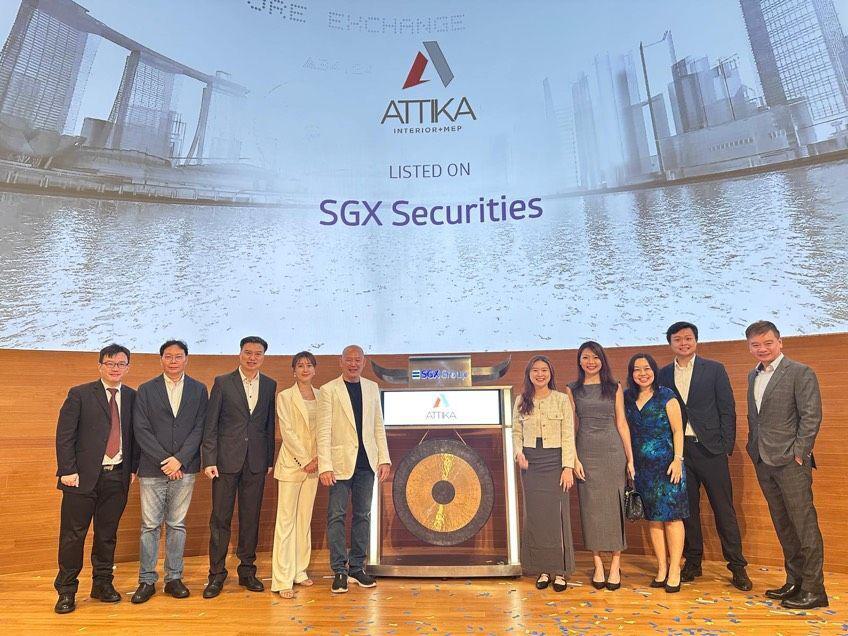
Accounting standards for construction company projects are being revised, with the existing FRS 11 Construction Contracts and FRS 18 Revenue replaced with FRS 115 Revenue from Contracts with Customers. We discuss the treatment of contract costs in the context of construction companies under both FRS 115 and the outgoing FRS 11.
Pre-Contract Costs
In a typical construction contract revenue cycle, the project team of a construction company would incur costs to develop the budget proposal. These costs would include travel, site survey, engineering consultancy, commission expenses, etc.
Under the existing FRS 11 Construction Contracts, costs that relate directly to a contract and are incurred in securing the contract are included as part of the contract costs if they can be separately identified and measured reliably, and it is probable that the contract will be obtained.
In practice, where recoverability of such cost is deemed probable, entities usually capitalise such pre-contract costs in the balance sheet after the entity is awarded the construction contract. Capitalising pre-contract costs in accordance with the new FRS 115 is more stringent; it requires that only incremental costs of obtaining the contract may be capitalised. And such costs are capitalised only if the entity expects to recover those costs.
Incremental cost refer to costs that an entity would not have incurred had the contract not been obtained. Costs that would have been incurred regardless of whether the contract was obtained shall be recognised as expense when incurred. FRS 115 provides practical expedient to allow an entity to recognise the incremental costs of obtaining a contract as expense when incurred if the amortisation period of the asset that the entity otherwise would have recognised is one year or less.
The contract, to construct a small building for Company B, will take two years to complete. The building contract fulfils the requirement of paragraph 35 of FRS 115 to recognise revenue over time. Under existing practice, Company A could recognise the total cost of $110,000 as part of contract costs when the contract with Company B was secured. The total contract costs and contract revenue will be recognised progressively in the income statements based on stage of completion of the construction project.
Under FRS 115, however, Company A will have to assess whether the costs incurred are (i) incremental costs of obtaining a contract, or (ii) costs to fulfil a contract. Travel, entertainment and allocated general and administrative costs of $35,000 are costs that would be incurred regardless of whether the contract is obtained and therefore they are recognised as expense immediately when incurred. Sales commission is the incremental cost incurred to obtain the contract and therefore it shall be capitalised and amortised over the contract period (two years). As for the preliminary design fees, Company A will need to assess whether the fees meet the criteria for capitalisation under cost to fulfil a contract (discussed in the subsequent section).
Implication: Entities that have been capitalising pre-contract costs currently under FRS 11 may realise that some of these costs would not meet the capitalisation criteria under FRS 115. It is expected that more costs will need to be recorded as expenses when incurred after FRS 115 become effective.
Costs to fulfil a contract
In respect of contract costs, both FRS 11 and FRS 115 contain similar guidance on allowable costs that can be capitalised. Generally, costs that relate directly to a specific contract, are included in the determination of contract costs if they are expected to be recovered.
FRS 115 focuses on costs of fulfilling a contract that are not within the scope of another financial reporting standard (FRS). Costs that are within the scope of another FRS (such as inventory, property, plant and equipment, intangible assets, etc) shall be accounted for in accordance with that other FRS.
Specifically, FRS 115 requires an entity to capitalise costs incurred to fulfil a contract if all of the following criteria are met:
i. The costs relate directly to a contract or to an anticipated contract that the entity can specifically identify;
ii. The costs generate or enhance resources of the entity that will be used in satisfying performance obligations in the future; and
iii. The costs are expected to be recovered.
For preliminary design fees, the entity will need to consider (i) the likelihood that the entity will be able to obtain the contract; (ii) whether the costs are expected to be recovered; (iii) whether the preliminary design works create or enhance the building that’s going to be constructed; and (iv) whether the costs incurred pertain to research and development that should be accounted for in accordance with FRS 38 Intangible Assets. If the entity assesses that the preliminary design works will be able to satisfy or enhance part of the performance obligation in the future and the costs can be recovered from the contract, the preliminary design fees shall be capitalised under FRS 115. If the required criteria under FRS 115 cannot be met, the preliminary design fees shall be recorded as expense when incurred.
Next Steps
As the impact of FRS 115 on entities will vary, management should gain an understanding of its requirements, and perform an early evaluation of how the new standard will affect their revenue recognition policies and practices. Preparing in advance to meet the requirements of FRS 115 is key to a successful implementation.
References have been made to FRS 115 Revenue from contracts with customers and illustrations adapted from the FRS 115 Illustrative Examples. For more information, please contact your usual contact person at Baker Tilly TFW.
DISCLAIMER: All opinions, conclusions, or recommendations in this article are reasonably held by Baker Tilly at the time of compilation but are subject to change without notice to you. Whilst every effort has been made to ensure the accuracy of the contents in this article, the information in this article is not designed to address any particular circumstance, individual or entity. Users should not act upon it without seeking professional advice relevant to the particular situation. We will not accept liability for any loss or damage suffered by any person directly or indirectly through reliance upon the information contained in this article.













